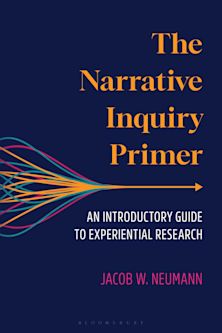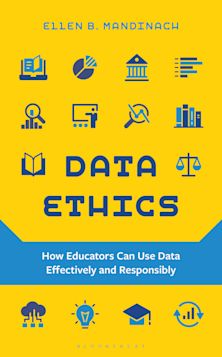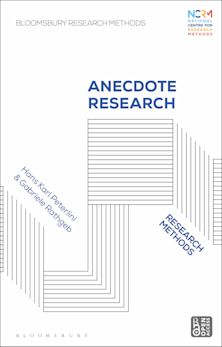- Home
- ACADEMIC
- Education
- Research Methods in Education
- How to Become Data Literate
How to Become Data Literate
The Basics for Educators
How to Become Data Literate
The Basics for Educators
You must sign in to add this item to your wishlist. Please sign in or create an account
Description
In this follow up to Statistics Made Simple for School Leaders Carroll and Carroll have provided an updated, easy to comprehend, manual for practitioners. Now more than ever, educators are being held accountable by taxpayers, students, parents, government officials and the business community for supportable documentation of educational results. Data management has become everyone’s job and everyone’s concern. But the regression of data has exposed a raw nerve. The lack of comfort that many educators have in working with data poses a great challenge as school districts make the transition from a data rich to an information rich environment. How to Become Data Literate is the solution. Educators need the ability to formulate and answer questions using data as part of evidence-based thinking, selecting and using appropriate data tools, interpreting information from data, evaluating evidence-based differences, using data to solve real problems and communicating solutions. This book is intended to be a user-friendly, educator’s primer. It will leave the reader with the confident attitude that “I can do this." In the long run, it is intended to underscore the magnificence of data. Decisions based on excellent data produce meaningful action strategies that benefit students, parents, staff, and the community at large.
Table of Contents
Chapter One: Speaking the language correctly
Chapter Two: Creating a snap shot of data with a picture
Chapter Three: Presenting a mountain of data with one number
Chapter Four: Understanding why range in your data is important
Chapter Five: Drawing a sample to represent a whole group
Chapter Six: Putting your assumptions to the test
Chapter Seven: T-tests: Examining differences between two groups
Chapter Eight: ANOVA: What if there are more than two groups?
Chapter Nine: Chi Square: Examining distributions for differences
Chapter Ten: Correlations: Detecting relationships
Chapter Eleven: Reporting your data clearly and strategically
Product details
| Published | 16 Mar 2015 |
|---|---|
| Format | Ebook (Epub & Mobi) |
| Edition | 2nd |
| Extent | 150 |
| ISBN | 9781475813333 |
| Imprint | Rowman & Littlefield |
| Publisher | Bloomsbury Publishing |
About the contributors
Reviews
-
In How to Become Data Literate, Susan Rovezzi Carroll and David J. Carroll, affiliated with Words & Numbers Research, provide succinct yet comprehensive support for administrators wading through applied basic quantitative statistics as a tool for data analysis. In fewer than 150 pages, the authors offer instruction for managing, manipulating, visualizing and interpreting the findings of data analysis projects. . . .[T]he book provides support for administrators seeking to understand and use common statistical techniques. I plan to apply this text in the education courses I teach and will strongly recommend it to my doctoral students. But the text also should be considered by educational leaders looking for an introduction to or a refresher of quantitative statistics. If your work responsibilities include making sense of data and analyzing results from a practical, programmatic perspective, or if you need support for quantitative statistics courses that you might be taking, I suggest you consider this work.
School Administrator
-
Ultimately, the book is what the authors intended to write—an easy-to-read statistics primer for educators. This book will be a welcome alternative to textbooks among educators who worry that they do not have the time or ability to make sense of the methods behind ‘data-driven decision making’ (p. v). By explaining the gist of statistics and providing concrete examples applied to simple problems in schools and classrooms, the book provides an entry point for practitioners who need to negotiate debates about how to translate research into practice. For educators who want to become active users and producers of data, this book should be viewed as a springboard—not a user’s manual— to becoming data literate. I will keep this book on my shelf, ready to share with those students who request a supplement ‘written in English’ to make sense of their textbook. The contrasts between this light read and our heavy textbook will allow me to raise important questions about what it means to understand data and use data in the service of improving education.
Mid-Western Educational Researcher (MWER)
-
As educators, we are increasingly called upon to make decisions for our districts, schools, classrooms, and individual students based on sometimes overwhelming amounts of frequently misunderstood data. This book is a much-needed gem, describing in easily understandable, straightforward language, the reasons for, uses of, and techniques for developing, manipulating and interpreting this data, ranging from mean, median and mode to ANOVA, Chi Square, and multiple regression. The data literacy described in this book is quite different from a poorly understood statistics textbook that many teachers remember from their graduate or undergraduate courses. This is something that every teacher and administrator will want to turn to again and again, as they frame questions and search for reliable, significant, evidence-based answers to critical issues they face every day.
Linda Jensen Sheffield, Ph. D., Regents Professor Emerita, Northern Kentucky University, Highland Heights, KY



































